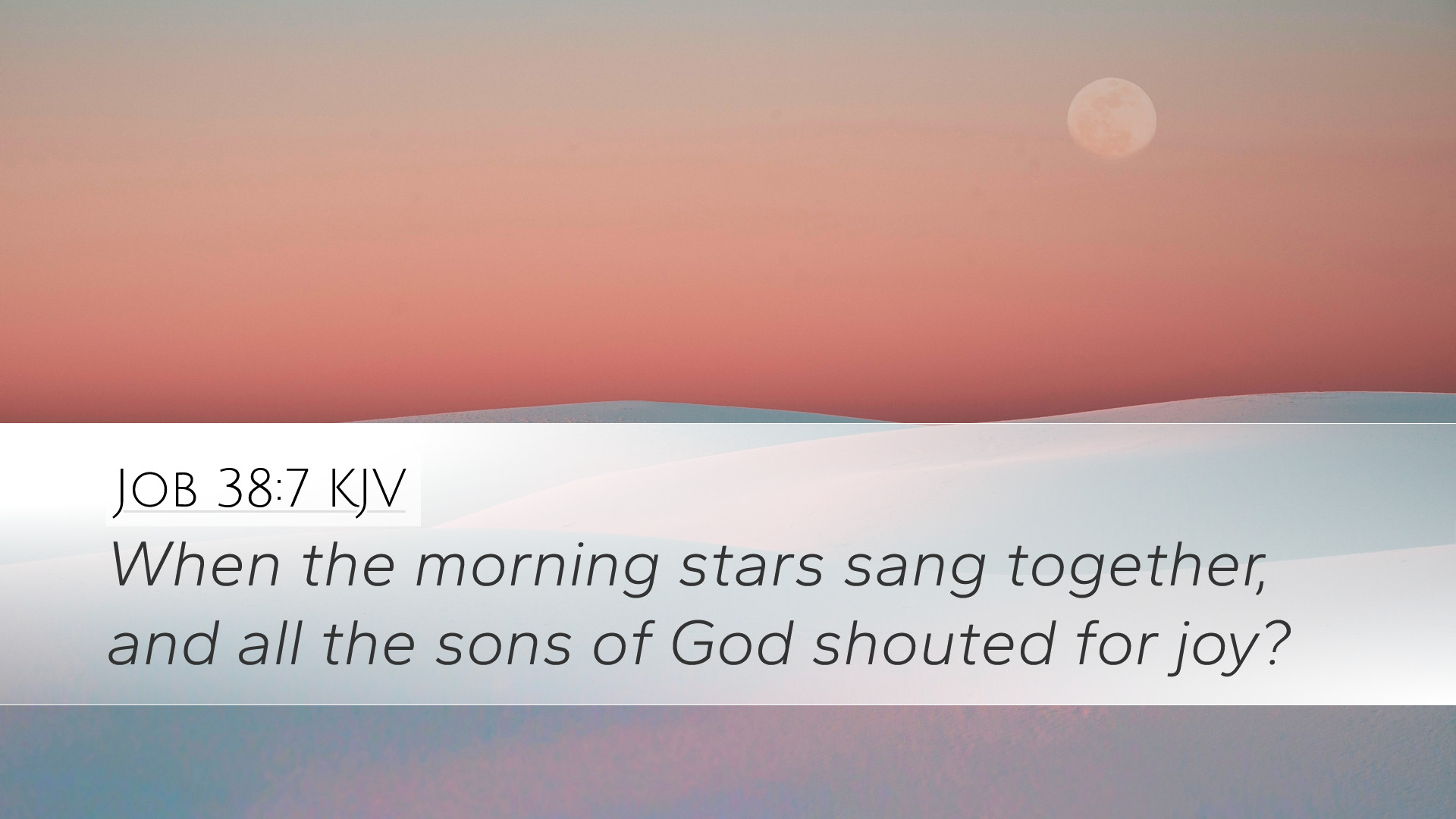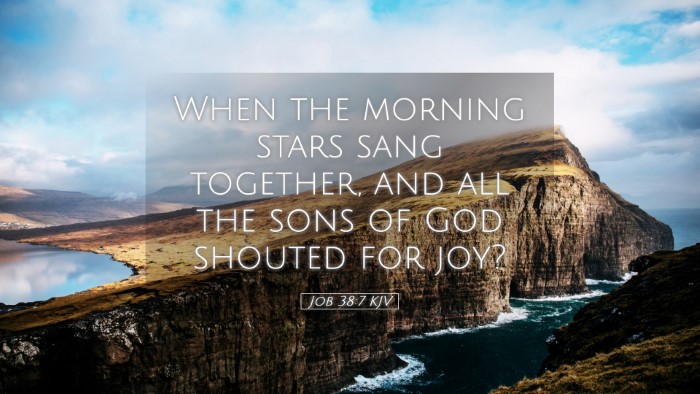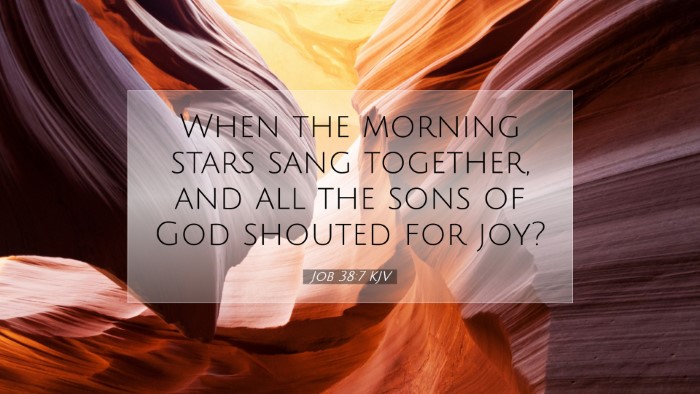Commentary on Job 38:7
Job 38:7 states, "When the morning stars sang together, and all the sons of God shouted for joy." This verse is a profound part of the Lord’s response to Job amidst his suffering and questioning of divine justice. As we delve into the commentaries of esteemed theologians such as Matthew Henry, Albert Barnes, and Adam Clarke, we will uncover the rich layers of meaning presented in this majestic declaration.
The Context of Job 38
Understanding the Setting: Job 38 marks a pivotal moment in the narrative where God finally responds to Job's lamentations and inquiries. After enduring intense suffering and the misinterpretations of his friends, Job is now confronted by the Creator. This chapter is often viewed as God's majestic response that emphasizes His sovereignty and the limitations of human understanding.
Insights from Major Commentaries
Matthew Henry's Commentary
In his analysis, Matthew Henry emphasizes the significance of the "morning stars" and "sons of God." He interprets the morning stars as celestial beings or angels who were created to glorify God. Henry asserts that their singing represents the joy and reverence of the heavenly realm at the creation of the world.
- Theological Implication: The term "morning stars" symbolizes the dawn of creation, suggesting a new beginning filled with divine purpose.
- Redemptive Joy: The "shouting for joy" reflects the ultimate joy in God's creative acts, indicating that even in suffering, there is a cosmic celebration of God's sovereign plans.
Albert Barnes' Notes on the Bible
Albert Barnes highlights the imagery of celestial beings celebrating the creation of the world. He notes that this event signifies God's authority and power. Barnes elaborates on the term "sons of God," suggesting it refers to angelic beings who were present during creation.
- Existential Reflection: This verse invites the reader to reflect on the relationship between creation and the Creator, emphasizing that all beings rejoice in the unfolding of God’s plans.
- The Rhetorical Device: God employs these rhetorical questions to demonstrate to Job that his understanding is limited and that the divine purposes are often beyond human comprehension.
Adam Clarke's Commentary
Adam Clarke offers a detailed analysis of the phrase "morning stars." He describes the poetic significance of this expression, noting that morning represents the beginning of light and hope. Clarke aligns the 'stars' with angelic beings, celebrating God’s work in creation.
- Symbolism of Light: The morning signifies enlightenment, contrasting with Job's current state of despair and darkness. It reveals that God’s creation is full of light, joy, and divine order.
- Purpose of Creation: Clarke comments on the joy of creation; it reflects the inherent goodness of God's work, challenging Job to understand that joy and suffering coexist in God's plan.
Theological and Pastoral Reflections
This verse compels us to recognize God's supremacy. The majestic creation is not merely historical; it speaks to ongoing realities in our lives. For pastors and theologians, it reaffirms the idea that in times of suffering, we are called to remember God’s sovereignty and the joy of His creation.
- Encouragement for Suffering: Understanding that even celestial beings rejoiced at creation encourages believers to trust that God’s purposes extend beyond our immediate suffering.
- Existential Assurance: The verse assures us that there is order and delight in God's creation, a reminder that despair is not the final word.
Conclusion
In Job 38:7, the image of "morning stars" singing and "sons of God" rejoicing encapsulates a profound truth about God's creation and sovereignty. As we reflect on insights from various commentaries, we are reminded that our understanding is limited, yet we are invited into the joy of creation. This verse challenges us to elevate our gaze beyond our struggles and recognize the beauty within God's grand design.


